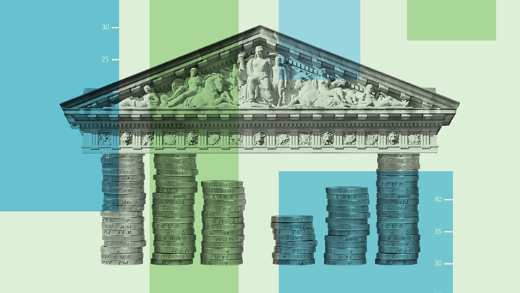Massive intervention by central banks and governments in recent years has left investors struggling to value financial assets.

When you need a helping hand
Governments and central banks around the world have provided huge support to economies and financial markets in the wake of the COVID-19 pandemic. They undertook similar action to stave off economic collapse after the global financial crisis of 2007-2009. As a result, financial markets have bounced back from the steep declines seen in early 2020 after the scale of the pandemic became apparent.
With vaccines against COVID-19 now offering the hope of some return to normality, it might seem like a good time to invest. However, while the recent rally in financial markets may continue, investors should always be alert to the dangers.
Central banks have pumped vast quantities of money into financial markets
Amazingly, given that 2020 represented the deepest global economic downturn since the Second World War, global equities rose by 16 per cent to end the year at a record high.1 The prices of other financial instruments, such as bonds issued by companies, also rose.2
That performance largely reflects the actions of central banks (such as the Bank of England and US Federal Reserve), which have pumped vast quantities of money into financial markets, as well as governments, which have unleashed huge spending programmes to support economies hit by lockdowns.
What is value?
The overwhelming majority of professional investors continue to rely on getting two basic calculations right: the likely return on an investment (or its value) and the level of risk involved.
However, the actions of central banks have pushed the price of virtually every financial asset sky high and made the task of assessing the actual value of an asset hugely challenging.
Forecasting the outlook for an economy is also increasingly difficult
Forecasting the outlook for an economy is also increasingly difficult. Sunil Krishnan, Aviva Investors’ head of multi-asset funds, explains that, while previously it was possible to draw on economic theory to make predictions about the business and investment outlook, the scale of policy intervention today means those linkages are now far weaker and therefore much less important.
There is also concern that, by allowing prices to become unhinged from economic reality, central banks are allowing asset bubbles to form.
However, Giles Parkinson, global equity fund manager at Aviva Investors, says that while shares may seem expensive relative to history, the same could arguably have been said for the last five years and yet the party has continued. Moreover, the same goes for every other asset class, such as corporate bonds and real estate.
Parkinson adds that it is important to stick to a tried and trusted investment process and avoid getting distracted by what is happening to shares that you do not own. He adds that while it is still possible to unearth shares that he believes offer reasonable value, this is getting harder.
Stick or Twist?
In July 2007, just before the global financial crisis, Charles Owen “Chuck” Prince III, the then boss of the giant financial services business Citigroup, famously said, “as long as the music is playing, you’ve got to get up and dance”, when explaining his bank’s attitude towards financial markets.
As long as the music is playing, you’ve got to get up and dance
Within four months, and with the bank racking up record losses, Prince was gone.
His remarks epitomise the dilemma facing investors today: whether to load up on financial assets and expose themselves to the danger of big losses or sit on the sidelines and miss out if financial markets continue to rise.
For now, it seems financial markets could continue to perform well for a while longer. This means investors, to quote Prince, may feel there is little option but to keep dancing. However, they may want to stick close to the door just in case.
Three points to remember
- Massive intervention by governments and central banks to support economies and financial markets has created distortions that make it difficult to assess risk and value when investing.
- Consequently, investors have to balance the risk of missing out on further gains if they withdraw money from the market with the danger of significant losses if financial assets, many of which seem overvalued, suffer losses.
- For the time being, the rise in the value of financial assets could continue, but investors should be prepared for all eventualities.

















